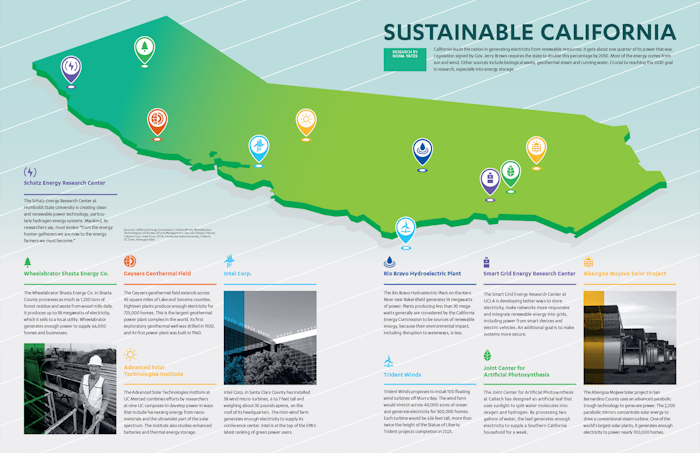 As the most populous state in America and one of the planets largest economies, California faces both challenges as well as opportunities with regard to waste management.
As the most populous state in America and one of the planets largest economies, California faces both challenges as well as opportunities with regard to waste management.
Each year, the state generates millions of tons of waste – from household trash to industrial byproducts. Comprehensive waste management strategies are an important part of addressing the environmental, economic, and public health impacts associated with disposable single use plastics. Waste management policies must support California in being a leader on sustainability and environmental stewardship – the health of its residents, economies & ecosystems depend on it.
Environmental Imperatives
Yet from its coast to forest, deserts and agriculture lands — the state’s varied ecological settings are threatened by inefficient waste management practices.
One of the more urgent issues in terms environmental impact are landfills, and with methane emissions from decomposing waste a major contributor to global warming, it is high time that these be tackled.
While California has taken steps to minimize landfill diversion (e.g., AB 341, a major landmark bill putting into place an aggressive statewide target of 75% recycling by the year 2020), it will be difficult for these efforts and goals to bear fruition without innovative disposal options which are both cost-effective as well environmentally preferred.
This is bad for the environment, as landfills release an overwhelming amount of methane into our atmosphere and kill off local species!
Disposal of hazardous waste (including electronic or e-waste and chemicals) is a critical problem for California’s environment; If not properly handled, these substances can seep into the ground and water supply contaminating Mother Earth and endangering wildlife. The state’s large agricultural sector is at great risk, as soil and water pollution may lead to far reaching consequences in terms of food production and public health.
The coastline in California is already bedeviled by marine debris that predominantly come from poorly managed waste. Plastic waste in particular, has been a large hitting environmental issue that cause marine ecosystems degeneration which leads to devastating effect on marine life But those policies are not being put into practice; failing to effectively defend the precious beaches and coastal waters that support so much of our environment, economy -and it seems-universal soul.
Economic Considerations
Efficient waste management is as necessary today in a time of dwindling resources, high fuel prices and an impending collapse if our faulty economics continue to disperse relentless fumes.
The waste management industry in California is responsible for thousands of jobs from collecting and transporting to recycling and processing. The state can generate new sets of economic opportunities and alleviate some landfill maintenance (and threat to the environment) costs through reinvesting into modern waste management infrastructure/ technologies.
There are also economic benefits to these recycling, waste-to-energy programs and dumpster rental services. California may reduce the financial strain on its municipalities also faced with heavy costs to dispose of waste by diverting solid material from landfills. The sale of recycled materials for recycling programs, in particular, can bring with it sales revenue while reducing the extraction raw material cost economically and environmentally.
Besides, poor waste management can result in huge economic losses especially related to the tourism industry. The sheer natural beauty of California, from its national parks to its beaches — brings in millions tourists annually as well. Yet tourism-based businesses and communities rely on visitors, so littered landscapes or polluted waters can be negatively affect revenues. Therefore, well-designed policies to manage waste are needed not just to reduce environmental impact but also to support California’s economy.
Public Health Implications
The health impacts of poor garbage disposal in California are enormous. Mismanaged waste can pollute the air and water, exacerbating human health. For example, landfills release gases like methane and volatile organic compounds (VOCs) which can cause lung problems that are of course worst in vulnerable people such as children and the elderly or anyone with a pre-existing condition.
Improper disposal of hazardous waste may include pharmaceuticals and industrial chemicals that can also contaminate drinking water sources. This is especially problematic in California where we already face water scarcity and a clear manifest destiny to address this brewing issue. Toxins can cause problems such as cancer, neurological disorders and reproductive failings.
Not to mention, undermanaged waste is actually shifted onto poor communities and communities of color – what you might know colloquially as environmental racism. They often live near landfills, waste treatment plants, and illegal dump sites – all of which create pollution that can make them sick. Policies that do not pass a robust environmental justice analysis and provide meaningful enforcement mechanisms, even if they work on paper can further exacerbate existing racial disparities in the right to an environmentally safe community for all Californians.
The fact that California requires proactive waste management legislation is obvious. The state must continue to innovate and invest in meaningful approaches, if it is to protect its environment, sustain its economy and get nearer zero waste. This means more than waste and recycling – it also encompasses hazardous wastes and environmental justice California has the opportunity to be a leader in stewardship, positioning our Golden State as an example of sustainability through smart policy and community engagement.
